I want to confess something: at the beginning of 2020, I had to travel from Malaga to Asturias. The idea was to spend almost a month in a rural house, enjoy that slow travel that so many times had slipped through my fingers due to the urgent need to see everything, do everything and cross off my list the more places in the world, the better.
Aware of the damage that air travel does to the environment, I decided travel by train with a two-year-old . Anyone who has a son or a daughter will understand the number of things that can go wrong traveling with a child of this age. Let's multiply those possibilities by the ones around eight hours, transfer through, that we threw the two of us alone on the train.
When we reach our destination, my sustainability marker was very high, as much as the one for fed up. We were both exhausted. For the return, I decided to put aside my principles and take a plane: in just under two hours I was at my destination.
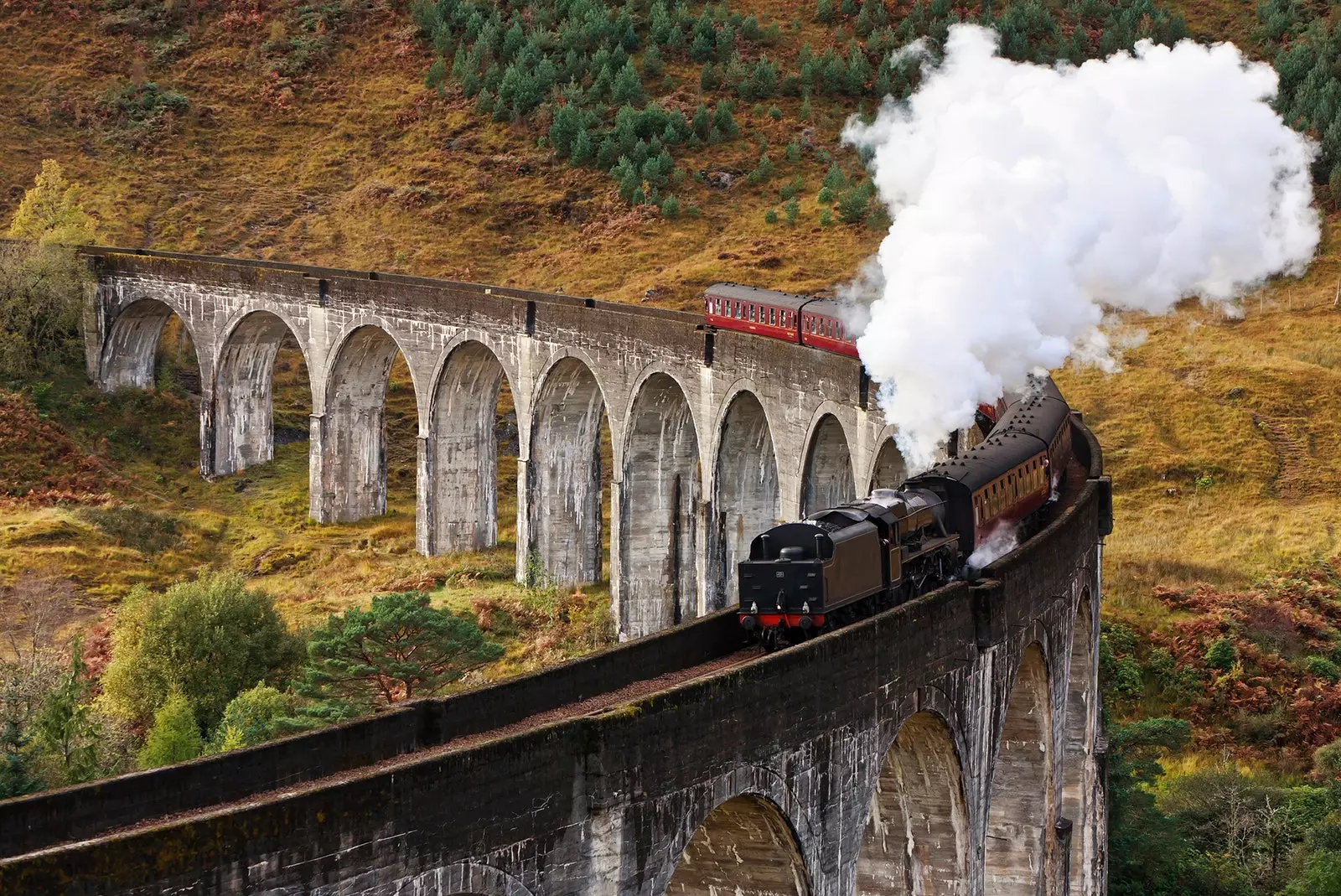
Not all trains look like a Harry Potter set, it's true, but they still fulfill their function
I tell this because I am perfectly aware that, to travel by train, you have to put aside the comfort of time. In a world marked by urgency, sometimes, it seems that “time” is all we have, and we have very little.
However, you don't always travel with a two-year earthquake that turns every minute into a vital gymkhana. And above all, maybe time is not what we have been told : a productive space in which to do, do and do. Perhaps it is enough to be, to exist.
Trains bring us closer to a calmer era, one in which the expanded hours can be used for pure contemplation . For reading, for chatting. To see it that way, you have to disconnect from the rush of everyday life, be brave, almost a visionary. But the advantages of traveling by train There are so many that it is worth weighing it:
1. Reliability
The trains are usually very punctual (the AVE, for example, refunds 50% of the ticket price if the delay is greater than 15 minutes, and 100% if it exceeds 30 minutes). minimize delays it is also saving time (and quality of life).
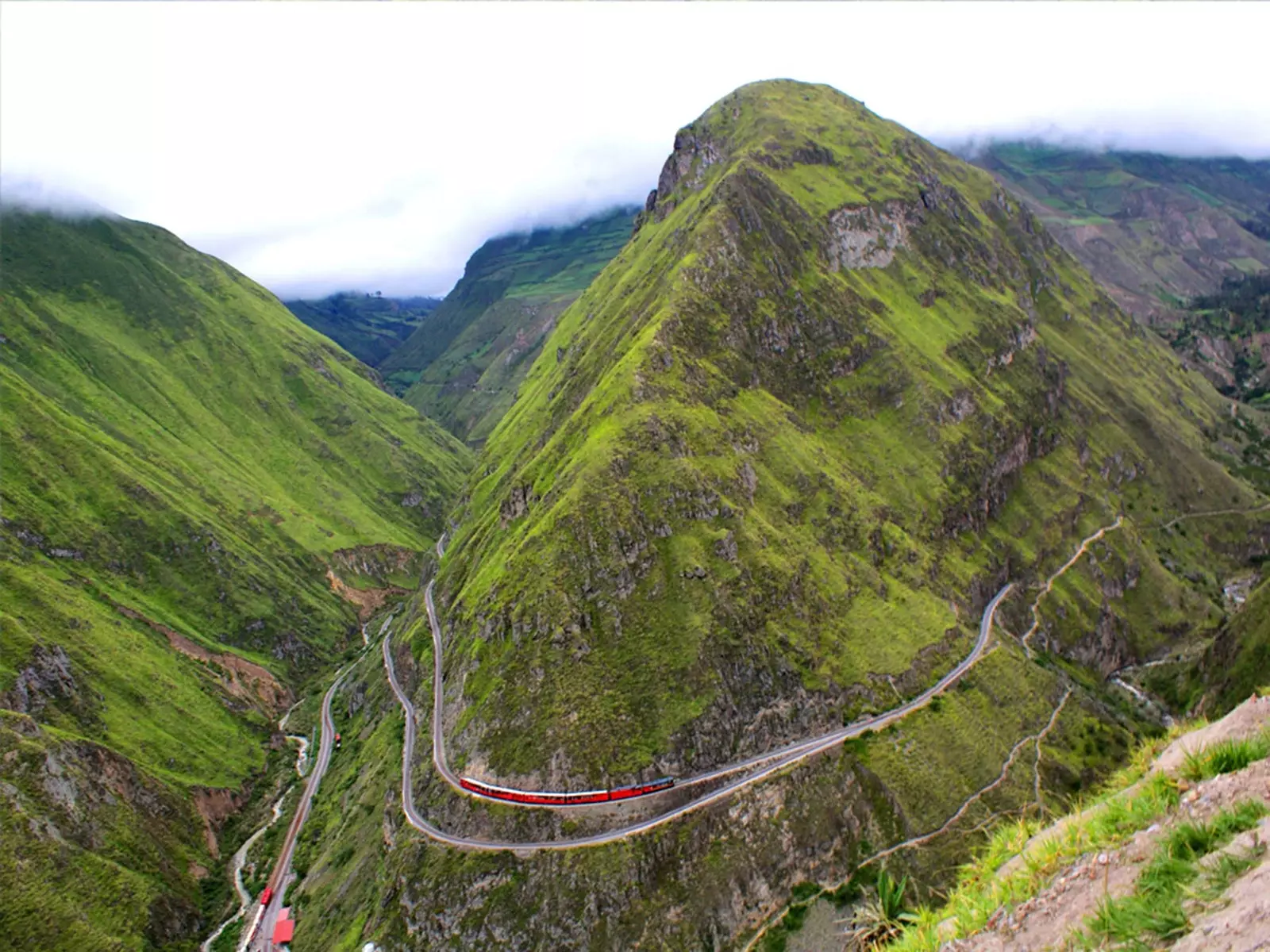
There are trains that are destinations in themselves
Also, they have a clear and defined schedule which does not usually change much from month to month, so they are a super reliable means of transport both for a well-planned trip and for a last-minute getaway.
2. Flexibility
It doesn't happen with all of them, but most of the national and international train tickets allow not one, but several date changes, at zero cost or for very little price. Normally, having various exits of the same train, moreover, it is easy to find a gap in the following hour, day or week.
3. Peace of mind
It is true that there are some precious ones, that the experience improves if you subscribe to their VIP lounges, but, in general, airports are a source of stress. To begin with, they are usually just outside from the city, so the trip actually starts well in advance, trying to reach the airport on time. Also, if you want to make the journey in cab , for example, it is common to have to pay a extra fee.
at the airport itself, queues are common to which is added the exasperating (and not infrequently, humiliating) passage through the Security control. In it, you will have to perform all kinds of stunts, from taking off your shoes to completely unpacking your suitcase, going through 'minutiae' such as disposing of the water bottle.
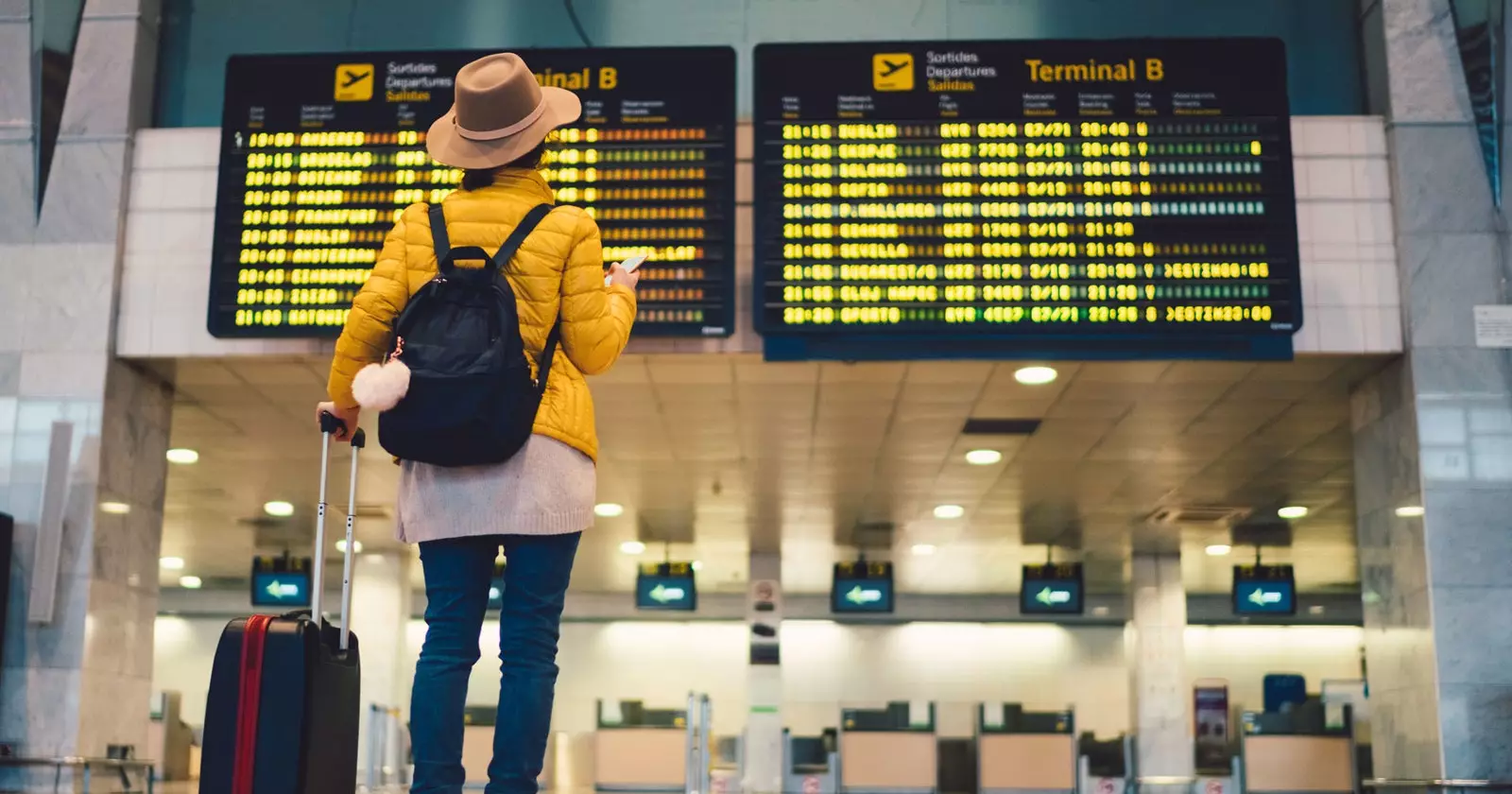
The stress of having to look for your boarding gate in the panels (and pray that it is not on the other side of the airport)
On trains, you can carry all kinds of liquids in luggage, whose dimensions, likewise, are not usually as limited as on the plane. In addition, there are usually no long queues to board, and the security controls are much less strict. As if that were not enough, the stations are usually located in the city center, whichever is more convenient.
4. Comfort
Gone are -and how sad to remember it- those wide seats that we have only seen in the movies, that refinement of the first commercial flights. We already live the economy class syndrome that medical term coined during the 90s to treat thrombosis that occur in passengers who travel frequently by plane, on long-haul flights, and not precisely in first class.
As if that were not enough, during the last decade, the abyss of comfort that separates the executive class of the tourist inside a plane has spoken even more: in business, double beds with 500 thread count sheets and duvet, bars on board and even showers at 38,000 feet. In tourist, you have to pay a plus for stretch your legs a little or power sit close to your family during the trip.
Ok, it is true that plane tickets have also become cheaper, but it turns out that those of train usually can face them with enough dignity in terms of price -except for some of those amazing air deals that appear from time to time-. But, above all, the trip on the tracks gives a extra comfort , with spacious seats and many times, inflight entertainment.
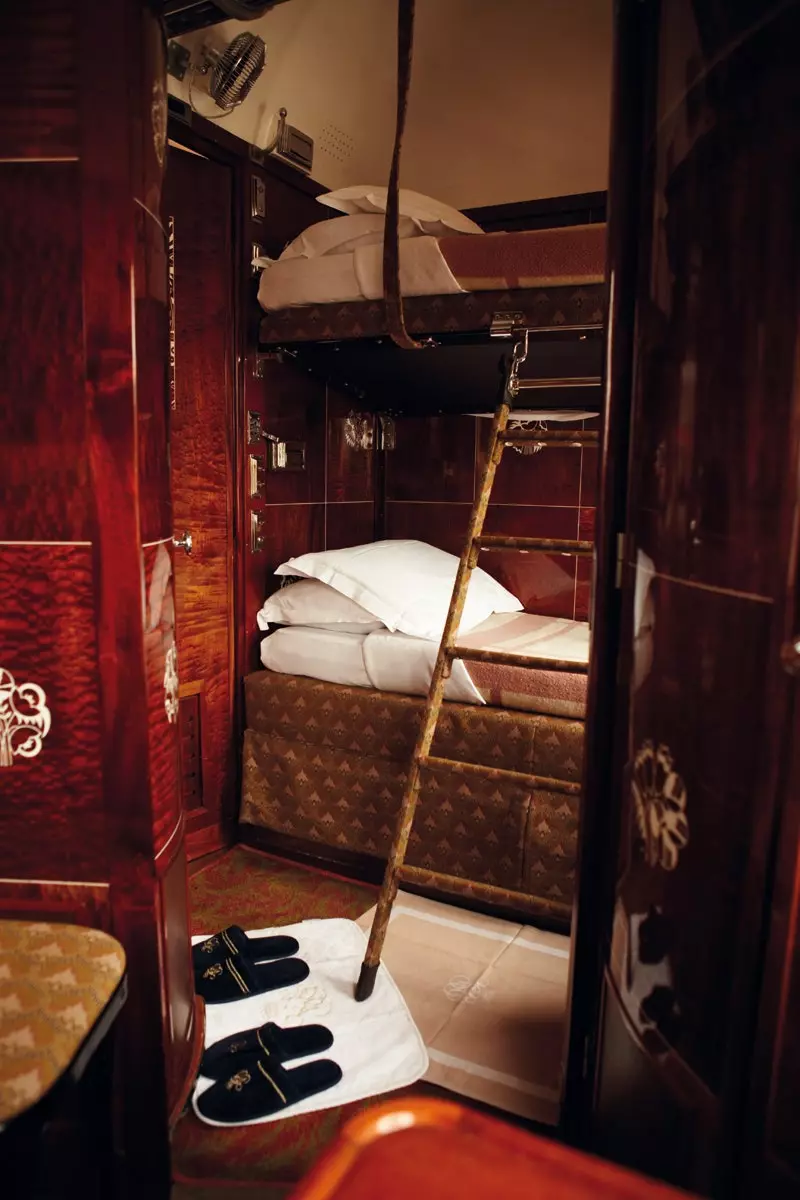
other league
5. Sustainability
At this point, there are few who do not know it: according to the European Environmental Agency (EEA, for its acronym in English), each person who travels by train (of those that can accommodate up to 150 passengers) emits 14 grams of carbon dioxide (CO2), compared to 285 grams generated by each user of an airplane (usually with capacity for only 88 travelers).
That is why they have become a reality in several European countries, such as France, the ban on chartering domestic aircraft make a journey that can be covered in two and a half hours or less by train. The Flygskam -the "shame of flying", in Swedish- has been going strong for years, and more and more passengers are aware of the consequences for the planet of choosing one means of transport or another.
6. Romanticism
Because traveling is not just going from point “a” to point “b”; traveling is also dreaming, and when we say that the important thing is the road, we also mean looking out the window, streaked with green when crossing the Black Forest, or completely white during the Norwegian winter.
traveling is also recapture the luxury of time : of a time only to exist. To read, perhaps, to write, draw, talk to the person next to you. Trains are slower, yes, but is that really a disadvantage, or the opposite?
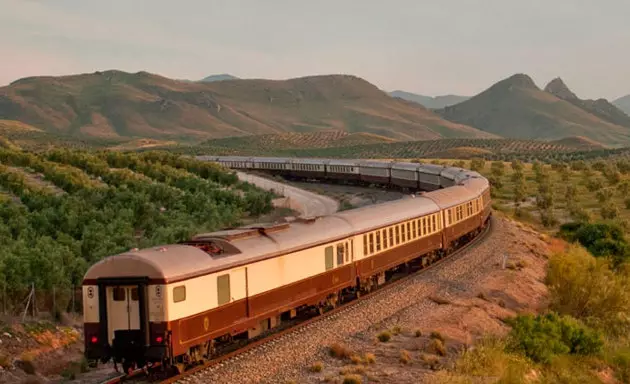
Through Andalusia, among olive trees
Maybe it's time to bet on a slower tourism. Not seeing everything, but seeing it well. Do not pack your suitcase on Friday and unpack it on Monday, emphasizing that overtourism that does so much harm to destinations, accumulating experiences as if we were devouring cookies. We love getaways like anyone else, yes, but its sustainability is in question.
Is this paradigm shift difficult? Of course. In a precarious and urgent world, accustomed to FOMO (the "fear of missing out"), join the JOMO (the joy of missing it) is to take a leap into the void. But maybe it's worth doing: get on a train at dusk in Vienna and get up in Paris. Travel the world on the tracks, from Portugal to Singapore. Give yourself the super pleasure of traveling in the mythical Eastern Express, or in a legendary British Pullman carriage, perhaps in the designed by Wes Anderson.
All these experiences will make us appreciate that what we “the journey is the journey” is more than a cliché phrase. That this romance associated with traveling can be true once again. That, beyond all these advantages of traveling by train, this means is, on countless occasions, the best choice.
